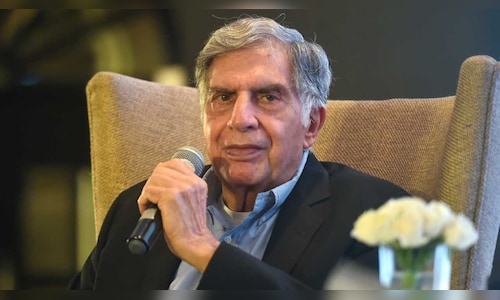In an interview with CNBC-TV18, Mathew recounted that Tata’s formative years were filled with turmoil, beginning with his parents’ separation when he was merely six or seven. “He became very insecure and clingy,” Mathew stated. “Even in 2020, whenever he reflected on his childhood, he showed deep remorse.” Following the separation, Tata’s father struggled emotionally, leaving young Ratan and his brother Jimmy in the care of their grandmother, Lady Navajbai Tata.
Lady Tata’s robust presence significantly impacted Ratan’s life. “She was highly ethical, principled, and unafraid to apologize,” Mathew remarked. “She would leave apology notes under his door. That was who she was.” The principles he absorbed from her, alongside those of the Parsi faith, formed the bedrock of the Tata philosophy of trusteeship. “The entire Tata ethos is founded on this resilience: that we hold the wealth of society in trusteeship and give back to it,” Mathew emphasized.
According to Mathew, the emotional wounds from his youth also shaped Tata’s personal decisions—most notably his choice to stay unmarried. “He had four significant relationships,” Mathew noted. “But when it came time to progress, I believe he often took two steps back.” Nevertheless, despite any personal insecurities, Tata never allowed his past traumas to tarnish his professional integrity or values. “Did it impact his business or principles? The answer is a resounding no.”
Mathew portrayed Tata as emotionally transparent and profoundly trusting. “If he had faith in you, he would be exceedingly open, to the point where you might think, ‘These are details you shouldn’t share with anyone.’ That’s the kind of person he was.”
Tata’s legacy, Mathew asserted, transcends mere business achievements. Reflecting on the introduction of the Nano car, he rejected the idea that it was unsuccessful. “RNT is not a man who engages in business solely for profit,” he quoted Henry Kissinger as saying. “He identifies a social need that is unmet, creates a business solution for it, and addresses that social challenge.” The Nano, Mathew contended, initiated a global transformation toward frugal engineering, leaving what experts now refer to as the “Nano Effect.”
At the heart of Ratan Tata’s narrative, as described in Mathew’s biography, lies not only business intelligence but a quiet fortitude forged through adversity, accompanied by a legacy of values passed down through generations.
Watch accompanying video for entire conversation.



